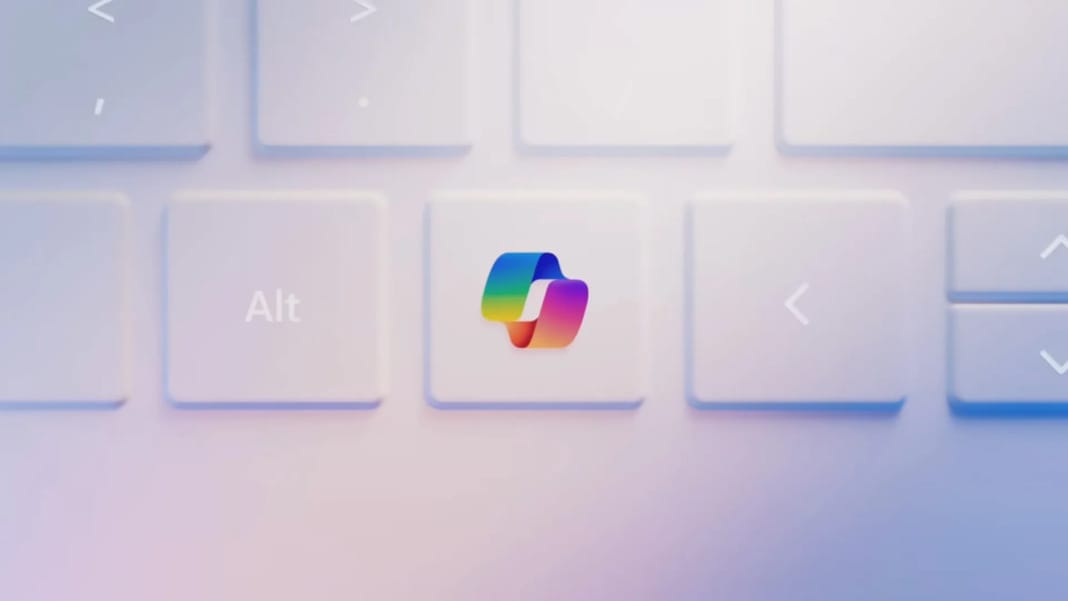In a significant move, Microsoft is revamping keyboards by adding a new Copilot key, marking the first major keyboard change in 30 years. Starting in February, this update will feature new laptops and standalone keyboards, making it easier for users to access Microsoft’s Copilot AI.
Introducing the Copilot key
Copilot, Microsoft’s comprehensive AI tool, offers a range of functions, such as navigating Windows, analysing documents, and composing emails. This tool, which debuted in 2023, is now gaining an even stronger presence in the daily lives of users with its dedicated key on the keyboard. Positioned next to the right alt key, it replaces the application key. When pressed, it launches Copilot on compatible PCs, or Windows Search if Copilot isn’t available.
A historical shift in keyboard design
This addition represents Microsoft’s first significant keyboard alteration since the Windows and menu/application keys were introduced nearly 30 years ago. Yusuf Mehdi, Microsoft’s executive vice president and consumer chief marketing officer, expressed optimism about the Copilot key’s potential to facilitate users’ engagement with AI technology.
Keyboards have evolved over the years, including dedicated keys for specific functions like music playback. Microsoft’s initiative with the Copilot key might become as universal as the Windows key, indicating a shift towards integrating AI more deeply into everyday computing.
Looking forward: Widespread adoption expected
The Copilot key will feature on upcoming Surface devices and products from Microsoft’s partners starting in February. While the initial range of models incorporating this feature remains undisclosed, more details are expected at CES 2024 next week. This development suggests a future where keyboards universally offer a direct gateway to AI assistance.





